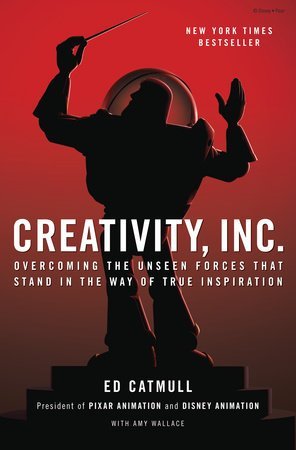Recent posts


Research Paper Guides
by  Mary Watson
Mary Watson
 Mary Watson
Mary Watson


 Image credit: Front cover of Creativity, Inc. (The Expanded Edition) by Ed Catmull with Amy Wallace. Randomhousebooks.com
Image credit: Front cover of Creativity, Inc. (The Expanded Edition) by Ed Catmull with Amy Wallace. Randomhousebooks.com